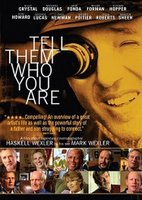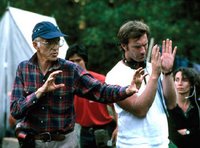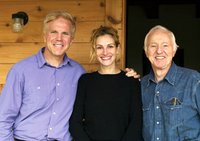 Haskell Wexler is a film rebel. A legend and an icon. His impact as a cinematographer for such films as WHO'S AFRAID OF VIRGINIA WOOLF, IN THE HEAT OF THE NIGHT, BOUND FOR GLORY, AMERICAN GRAFFITI, and reigning champ of concert films (sorry Dave Chappelle), RICHARD PRYOR LIVE ON THE SUNSET STRIP is stellar. MEDIUM COOL, Wexler's integration of fictional narrative woven into actual events, is audacious and disturbing on a number of levels. There is no question as you look through his work that Haskell Wexler is an impassioned artist.
Haskell Wexler is a film rebel. A legend and an icon. His impact as a cinematographer for such films as WHO'S AFRAID OF VIRGINIA WOOLF, IN THE HEAT OF THE NIGHT, BOUND FOR GLORY, AMERICAN GRAFFITI, and reigning champ of concert films (sorry Dave Chappelle), RICHARD PRYOR LIVE ON THE SUNSET STRIP is stellar. MEDIUM COOL, Wexler's integration of fictional narrative woven into actual events, is audacious and disturbing on a number of levels. There is no question as you look through his work that Haskell Wexler is an impassioned artist.Haskell Wexler is also kind of a prick.
 On the surface, TELL THEM WHO YOU ARE is a documentary about the life and work of Wexler. But the fact that it's a documentary both shot and directed by his son, Mark Wexler, adds a completely different dimension to the film. Mark uses his father's own weapon against him - the camera - in an effort to both understand the complexities that underlined their strained relationship as father and son and additionally to step out from under the shadow of a giant. Often shooting each other simultaneously, Mark and his father wrestle with each other over the conflicts that have plagued their lives - Haskell's disgust at his son's more conservative leanings, Mark with his father's alleged infidelities and lack of parental guidance.
On the surface, TELL THEM WHO YOU ARE is a documentary about the life and work of Wexler. But the fact that it's a documentary both shot and directed by his son, Mark Wexler, adds a completely different dimension to the film. Mark uses his father's own weapon against him - the camera - in an effort to both understand the complexities that underlined their strained relationship as father and son and additionally to step out from under the shadow of a giant. Often shooting each other simultaneously, Mark and his father wrestle with each other over the conflicts that have plagued their lives - Haskell's disgust at his son's more conservative leanings, Mark with his father's alleged infidelities and lack of parental guidance.The movie is chock-full of celebrity interviews, including George Lucas, Sidney Poitier, Julia Roberts, and Milos Foreman, who worked with Haskell Sr. briefly on ONE FLEW OVER THE
 CUCKOO'S NEST (before firing him), and it's fascinating to hear each of them speak directly to Mark about his father, as opposed to simply reminiscing about their work with him as an artist. Each of them in turn offer their views of Haskell as a filmmaker, as a man, and as a father. Sometimes the mic is left on, and you can hear the private conversations, as when Jane Fonda tells Haskell she can see Mark's fear at doing this. It's those private moments, the ones that step back from his work and focus on his life as a man and as a father that really pull hard in the film.
CUCKOO'S NEST (before firing him), and it's fascinating to hear each of them speak directly to Mark about his father, as opposed to simply reminiscing about their work with him as an artist. Each of them in turn offer their views of Haskell as a filmmaker, as a man, and as a father. Sometimes the mic is left on, and you can hear the private conversations, as when Jane Fonda tells Haskell she can see Mark's fear at doing this. It's those private moments, the ones that step back from his work and focus on his life as a man and as a father that really pull hard in the film.Those moments of real interaction - each person trying to manipulate the film toward their own ends - is what really makes this work. A little choppiness throughout the narrative, mixed with Mark's own stulting pace at times doesn't make this perfect, but as a portrait of two people trying to find their voice while viewing the world behind the shelter of lenses and shutters, it's smooth.
No comments:
Post a Comment